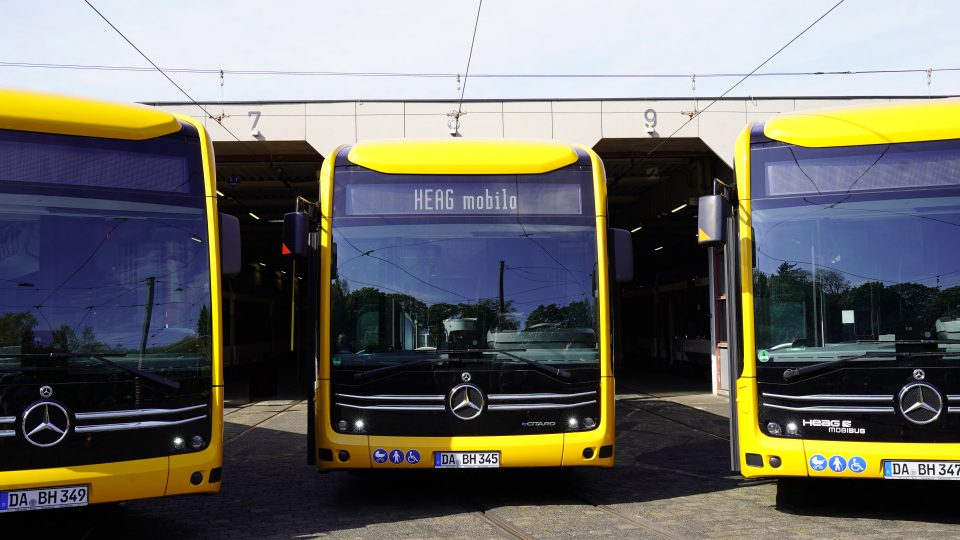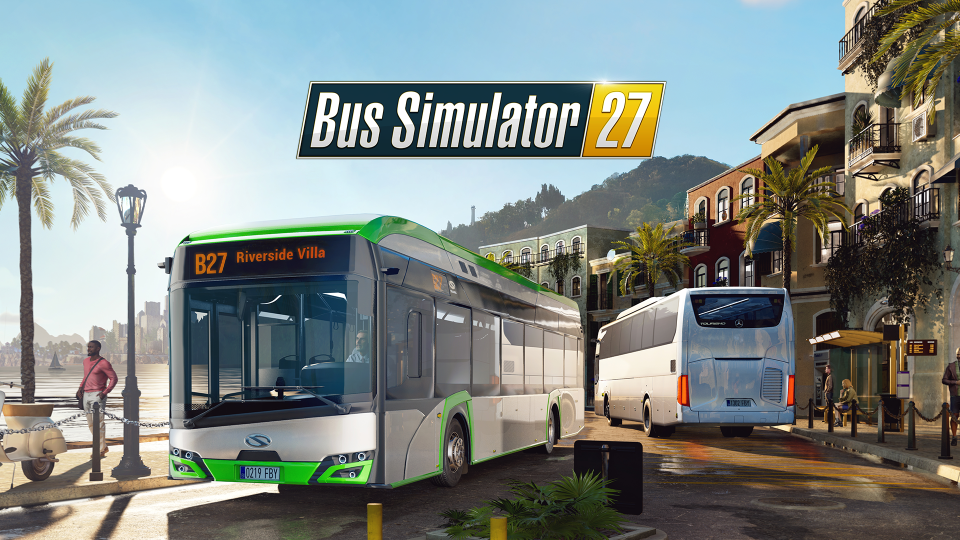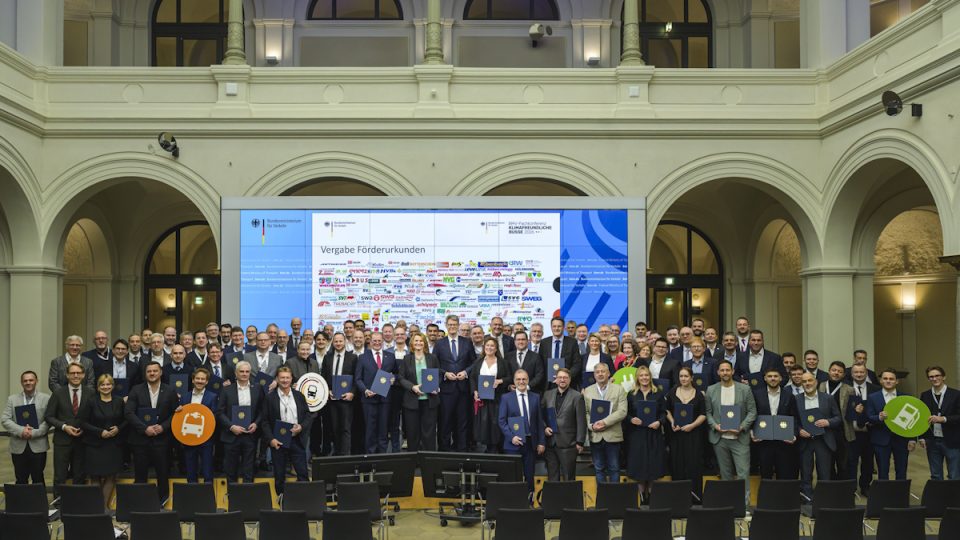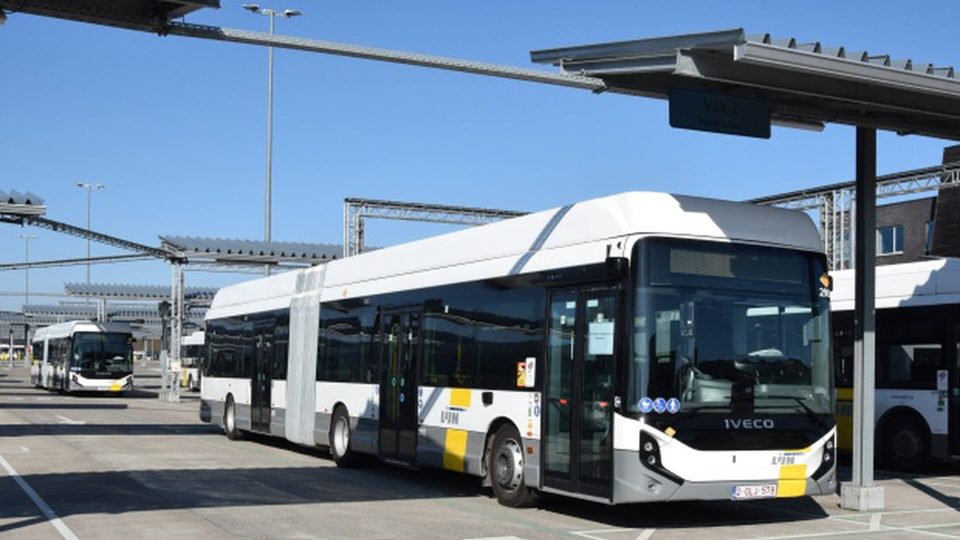Here it comes the Iveco eDaily with fuel cell. The launch at IAA (with BEV version)
Iveco Group and Hyundai Motor Company today at IAA Transportation 2022 in Hanover unveiled the first IVECO eDAILY Fuel Cell Electric Vehicle. The eDAILY FCEV prototype unveiled in Hannover is equipped with Hyundai’s 90 kW hydrogen fuel cell system and 140 kW e-motor. Six tanks offer a combined storage capacity of 12 kg of hydrogen. The GVW (Gross Vehicle Weight) 7.2 ton prototype […]
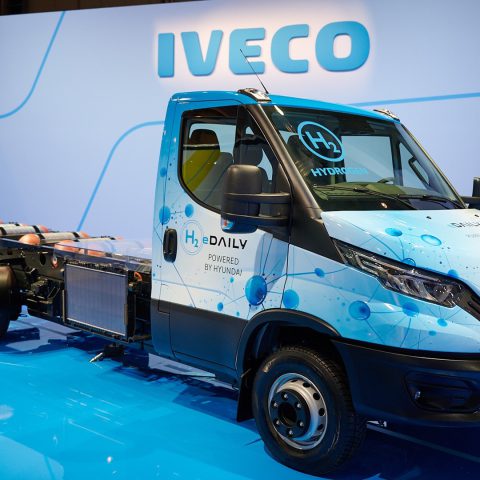
Iveco Group and Hyundai Motor Company today at IAA Transportation 2022 in Hanover unveiled the first IVECO eDAILY Fuel Cell Electric Vehicle.
The eDAILY FCEV prototype unveiled in Hannover is equipped with Hyundai’s 90 kW hydrogen fuel cell system and 140 kW e-motor. Six tanks offer a combined storage capacity of 12 kg of hydrogen.
The GVW (Gross Vehicle Weight) 7.2 ton prototype has been tested in Europe, confirming a driving range of 350 km (stated by the manufacturer), maximum payload of 3 tons and a refueling time within 15 minutes. While eDAILY BEV, also launched today at the IAA, is best suited for short journeys, eDAILY FCEV will be an ideal option for deliveries where long range with high payload is necessary.
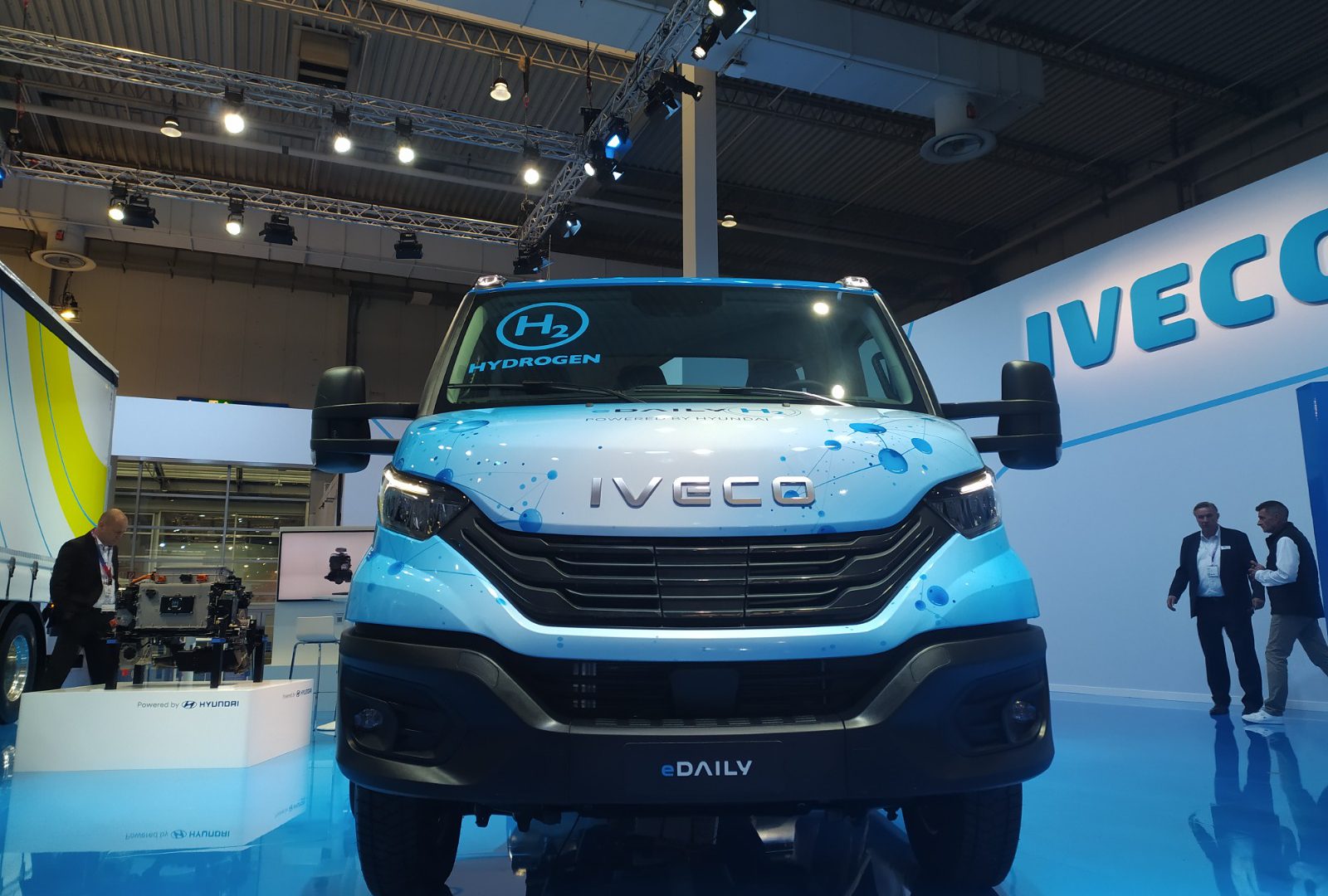
Iveco eDaily fuel cell launched
Both Iveco Group and Hyundai have ambitious sustainability goals, as demonstrated by their individual commitments, and are leveraging their collaboration to help accelerate the transition towards net zero carbon. Since signing a Memorandum of Understanding (MoU) in March 2022, they have formed multiple joint working groups on various technological streams to explore ways that they can complement each other on the development of electric vehicles and alternative propulsions.
Earlier in July, the two companies jointly announced hydrogen-powered IVECO BUS vehicles equipped with Hyundai’s fuel cell system. Today, they unveil the eDAILY Fuel Cell Electric Vehicle (FCEV), which represents the future potential of IVECO’s bestselling and longest production-running large van, with a range that currently includes traditional and methane/bio-methane propulsions, and new Battery Electric Vehicle (BEV) models.
Additionally, it is reported, Hyundai is also considering sourcing opportunities from FPT Industrial in the area of next generation conventional powertrains for commercial vehicles.
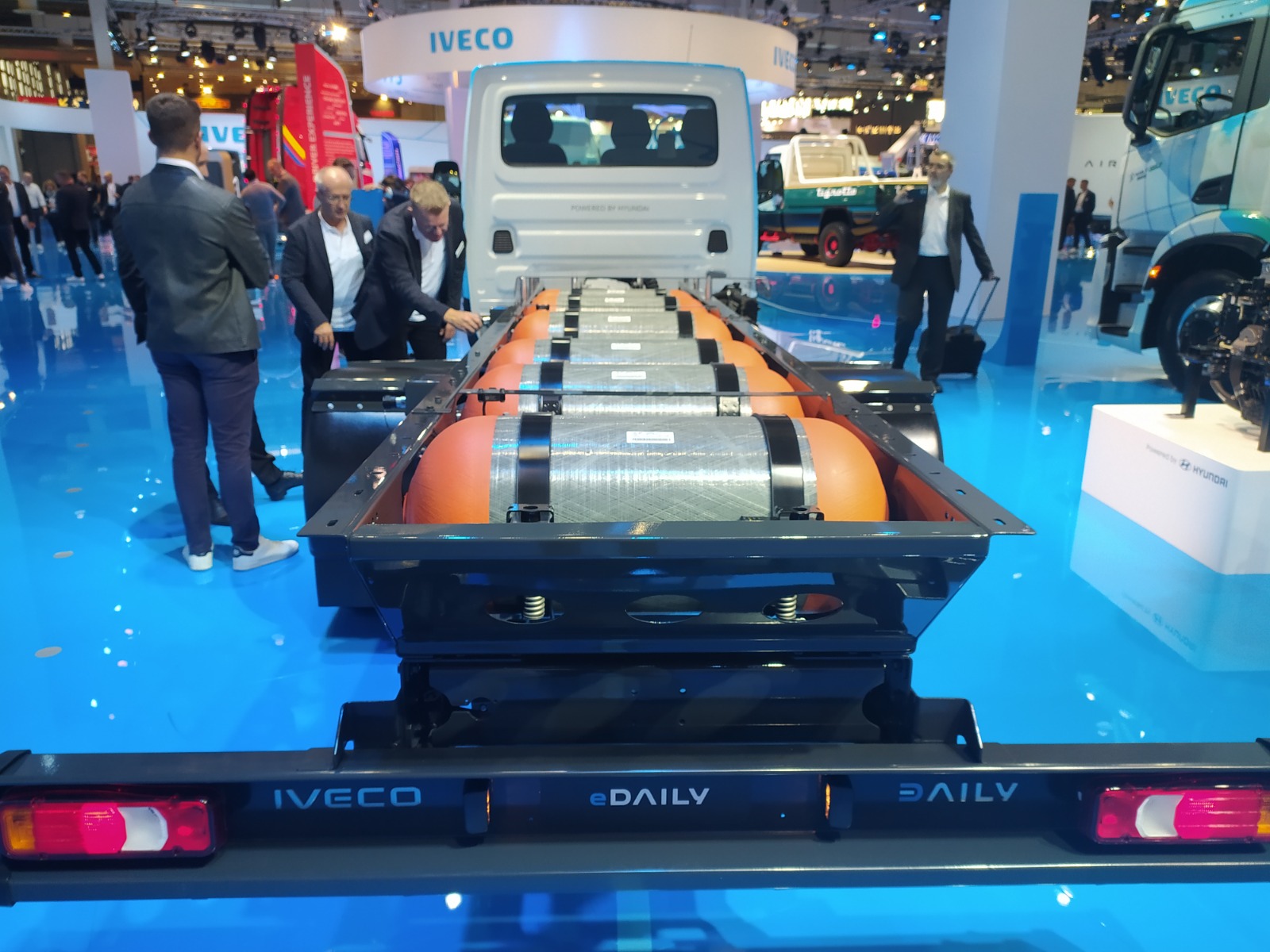
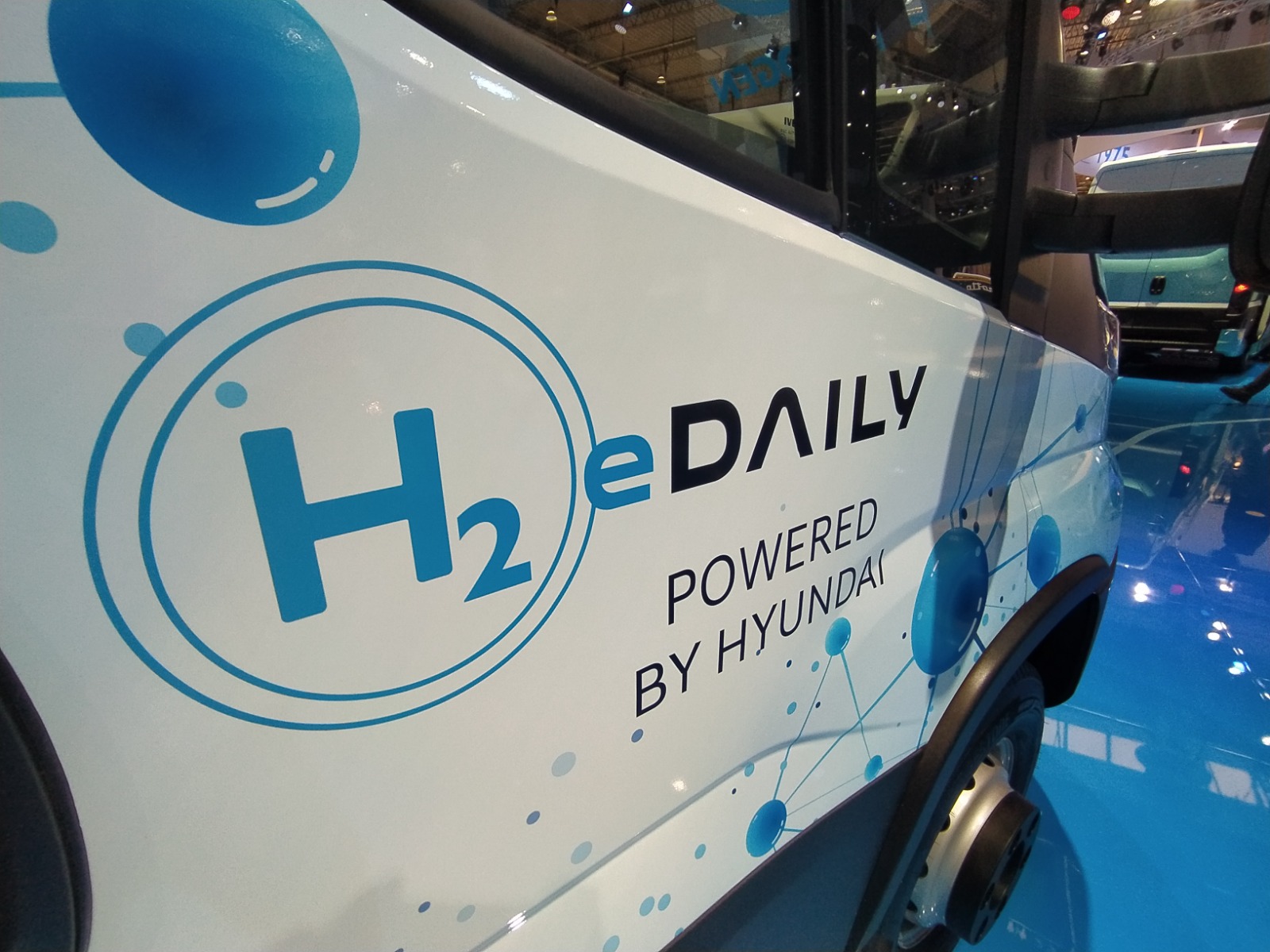
Battery pack of Iveco eDaily BEV and Fuel Cell?
An integral part of the eDAILY FCEV is the battery pack by FPT Industrial, the powertrain brand of Iveco Group, while the fuel cell system provided by Hyundai is the latest step in the company’s 20+ year hydrogen mobility journey. Hyundai’s advanced fuel cell technology is already in use in various applications, and especially in the commercial vehicle sector. The system logged over 4.5 million km in Switzerland on heavy duty trucks showing its powerful performance and reliability. The slogan “Engineered by Iveco Group, powered by Hyundai” reflects this mutually beneficial cooperation and will also be the driver for similar future initiatives.
“Following the recent announcement that IVECO BUS will equip its future hydrogen-powered buses with our fuel cells, the hydrogen-powered eDAILY is another concrete example of what we can accomplish by working together in accelerating the transition to carbon neutrality”, commented Martin Zeilinger, Head of Commercial Vehicle Development Tech Unit of Hyundai Motor Company. “The partnership between the two companies has proven to be very successful and we expect greater results in the coming years.”
“On the day we are announcing that our battery-electric eDAILY project has come true, we are thrilled to present the first hydrogen-powered eDAILY to the world. Based on this prototype, we aim to roll out a small series of FCEV vans for trial with selected customers by the end of next year”, said Marco Liccardo, Chief Technology & Digital Officer, Iveco Group. “This exciting milestone in our sustainability journey is an outcome of the successful collaboration between Iveco Group and Hyundai Motor Company and shows how we can achieve tangible results in a short timeframe by combining our strengths.”



